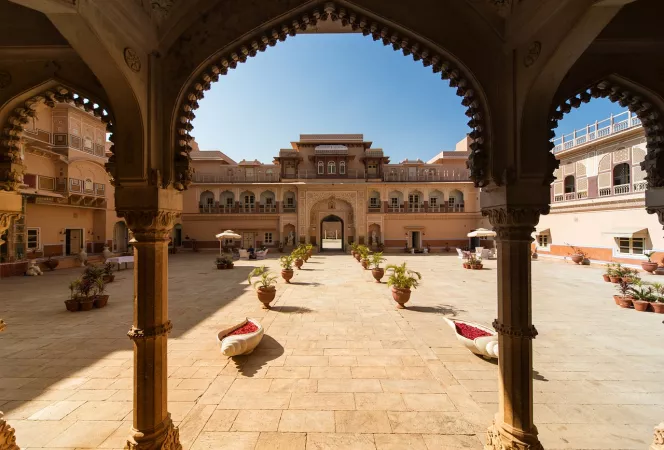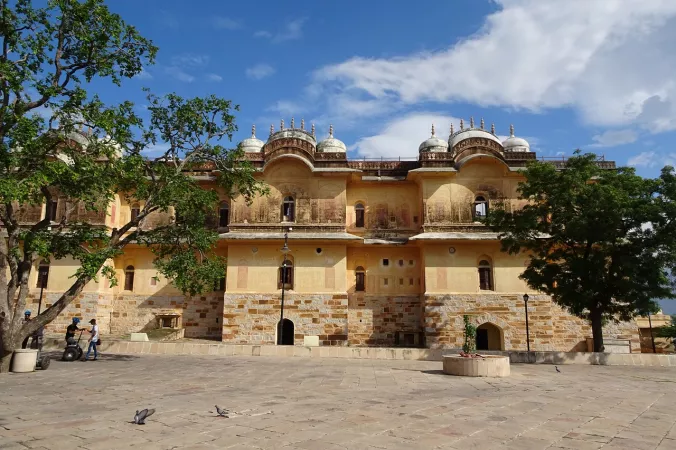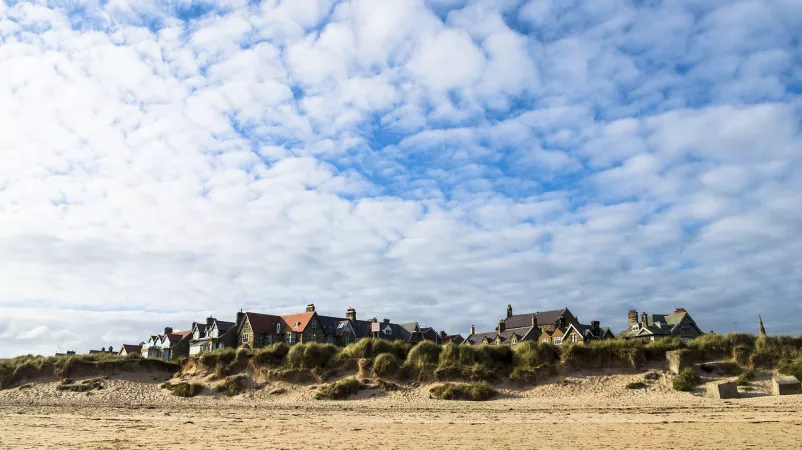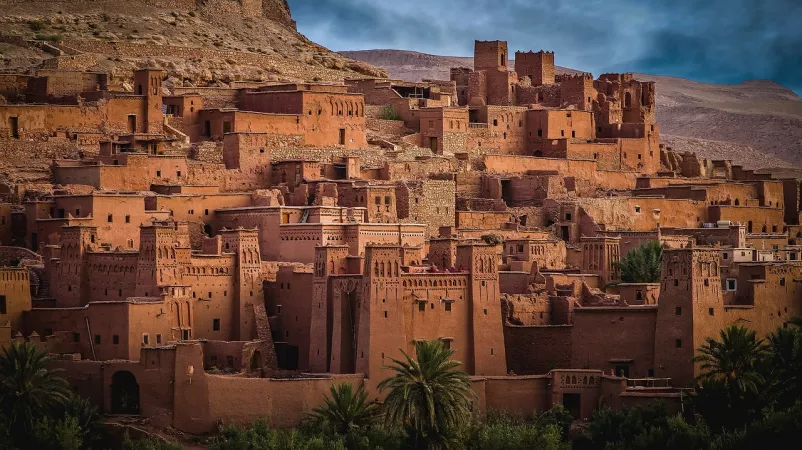
Khimsar
Duration
1 to 2 Days
1 to 2 Days
Best time to visit
Oct-Mar
Oct-Mar
Theme
Heritage
Heritage
Khimsar Travel Guide
Khimsar is a hidden gem in the heart of Rajasthan, India, known for its rich history, stunning architecture, and vibrant culture. This small village offers a glimpse into the royal past of India, with its majestic forts and palaces that have stood the test of time. Khimsar is famous for its beautiful sand dunes, traditional Rajasthani cuisine, and warm hospitality that will make you feel like royalty during your stay.Top Attractions in Khimsar
- Khimsar Fort
- Nagaur Fort
- Camel Safari in the Thar Desert
- Khimsar Sand Dunes
- Local Bazaars
Khimsar is Famous for
Experiencing the authentic Rajasthani culture and hospitality.Top Attractions in Khimsar
- Explore the stunning Khimsar Fort
- Visit the ancient Nagaur Fort
- Embark on a thrilling Camel Safari in the Thar Desert
- Witness the mesmerizing Khimsar Sand Dunes
- Shop for local handicrafts and souvenirs in the bustling bazaars
What's Great about Travelling to Khimsar?
- Experience the royal Rajasthani heritage
- Immerse yourself in the vibrant local culture
- Enjoy the tranquility of the desert landscape
What's Not So Great about Travelling to Khimsar?
- Limited nightlife options
- Extreme temperatures during summer months
- Limited public transportation
Travel Tips for Khimsar
- Carry sufficient water and sunscreen for desert excursions
- Respect local customs and traditions
- Book accommodations in advance, especially during peak tourist season
Important Khimsar trip information
- Ideal Duration: 2-3 days
- Best Time to Visit: October to March
- Nearby Airports and Railway Stations: Jodhpur Airport and Jodhpur Railway Station
Top 3 Places to visit in Khimsar
FAQ's on Khimsar
Q1: What is the best time to visit Khimsar?
The best time to visit Khimsar is from October to March when the weather is pleasant for exploring the desert landscapes and historical sites. Avoid visiting during the summer months (April to June) when temperatures can soar. Consider visiting during the Khimsar Festival in February for a cultural experience.
Q2: Do I need a visa to travel to Khimsar?
Tourists visiting Khimsar typically require a valid Indian visa. However, travelers from certain countries may be eligible for e-Visas or visa exemptions. It is advisable to check with the Indian embassy or consulate for the most up-to-date visa requirements before your trip.
Q3: What are the must-visit attractions in Khimsar?
Khimsar is known for its majestic Khimsar Fort, a stunning heritage hotel with historical significance. Other must-visit attractions include the Khimsar Sand Dunes for a desert experience, the Nagaur Fort for its architecture, and the Osian Temples for cultural exploration.
Q4: Is Khimsar a safe place to travel?
Khimsar is generally a safe destination for travelers. However, it is recommended to take standard precautions such as avoiding isolated areas at night and safeguarding your belongings. Be cautious while exploring the desert areas and follow the guidance of local guides.
Q5: What is the local currency in Khimsar and can I use credit cards?
The local currency in Khimsar is the Indian Rupee (INR). While credit cards are accepted at some hotels and upscale establishments, it is advisable to carry cash for smaller vendors and local markets. ATMs are available in larger towns for convenient access to money.
Q6: What is the local cuisine like in Khimsar?
Khimsar offers a mix of traditional Rajasthani cuisine with influences from the desert region. Enjoy dishes like Dal Baati Churma, Gatte ki Sabzi, and Bajre ki Roti. Vegetarian options are common, and the use of spices and ghee adds richness to the flavors. Be mindful of spicy foods if you have a sensitive palate.
Q7: What transportation options are available in Khimsar?
In Khimsar, transportation options include taxis, auto-rickshaws, and local buses for short distances. Hiring a car with a driver is a convenient way to explore the region. Camel safaris are popular for a unique experience in the desert. Plan your transportation in advance for seamless travel.
Q8: Are there any cultural norms or etiquette I should be aware of when visiting Khimsar?
When visiting Khimsar, it is important to respect local customs such as dressing modestly, especially when visiting religious sites. Remove your shoes before entering temples or homes and seek permission before taking photographs of people. Greet locals with a "Namaste" and be mindful of cultural sensitivities during your interactions.
Q9: I am a travel agent. How can I buy travel leads of Khimsar?
Register yourself as a travel agent at agents.tripclap.com and then you can buy travel leads to Khimsar once your account is approved. For more details contact our support team at +91-8069186564 or support@tripclap.com



